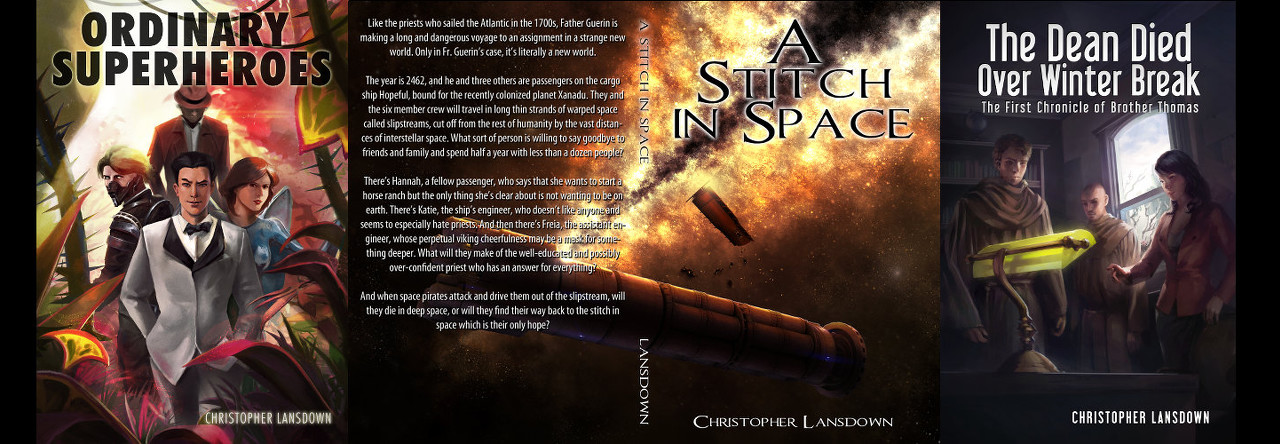In Star Wars Episode V: The Empire Strikes Back, Luke famously asks Master Yoda if the dark side of the force is more powerful than the light side of the force. Yoda’s answer is no, it’s not more powerful. It’s only faster. That is, one gains power more quickly on the dark side, but there isn’t more power to be gained. And, of course, that faster power comes at a price.
I’ve been wondering if there isn’t something analogous in writing, where plot holes make interesting stories easier to write.
In one sense this is obviously true. Shoddy workmanship is easier than good workmanship. On the other hand, Rian Johnson supposedly worked for weeks on the opening word crawl for Star Wars Episode VII: The Last Jedi, and the first two sentences contradicted each other. Shoddy workmanship requires less effort, but apparently it is not always the result of less effort. In any event, this isn’t what I’m wondering about.
There are two ways in which something being easier is interesting. The first is that easier things, if one keeps the results the same, require less effort and are thus more comfortable. It’s in this sense that doing a bad job is easier than doing a good job. The other way in which something being easier is interesting is if it allows one to produce better results. A lever is a good example of this: a lever allows a man who is pushing his hardest to push more weight. Or to give another example, a wheel allows a man who is pulling as hard as he can to pull far more weight. This is what I’m wondering about.
Do plot holes allow a writer of a given skill level to write a more interesting story than his skill level would normally allow?
Obviously, I mean before one gets to the end and finds out that the implicit promises of an explanation will not be fulfilled.
What makes a story interesting are questions which are raised and which the story (implicitly) promises will be answered at the end. One of the most intriguing questions which can be raised is an apparent contradiction which admits of some deeper explanation which shows that the appearance is deceiving and the contradiction is not really a contradiction. In Silver Blaze, Holmes draws the inspector’s attention to the curious incident of the dog in the night. But the dog did nothing in the night, which is, itself, the curious incident. How can this be? There seems to be a contradiction here.
The solution of this apparent contradiction is that the dog would have barked had a stranger been about, so his doing nothing was positive evidence that no stranger had come by. The apparent contradiction of an interesting-nothing was paid off, and paid off well. So well, it was imitated so often as to make its way onto a list in 1920 of tricks that should be dropped for being too well-used (Silver Blaze was first published in 1892).
Plot holes are contradictions in a story. As such, they have the appearance of being a contradiction. Until the story is over, however, the reader cannot know that there will be no explanation of them. They thus make the story more interesting, as the reader keeps trying to guess what the solution will be. This can go badly for the author, but it need not. It will only go badly if the reader remembers the plot hole when the story is over.
There are two main ways of making the reader forget that there was a plot hole in a story:
- Distract the reader
- Give a bad explanation
In the first case, if there are enough twists and turns and the characters no longer are concerned with the events in which the plot hole occurred, the reader may simply forget the plot hole entirely. This will work better with readers who have bad memories, but they certainly can be found. (It probably works better in movies and television.)
In the second case, if the author only gives part of the bad explanation and has the characters are seen to accept it, many readers won’t pause to think through the rest of the explanation and how it doesn’t work. The more quick-witted readers, as well as the more dogged readers, will, of course, but there are plenty of readers with little patience and not much more wit.
If the author is able to disguise his plot holes in this manner, he will have gotten the advantage of his book being more interesting while the reader was reading it. The use of this technique—possibly without the author even realizing what he is doing it—might well enable him to write books which, to an inattentive reader, seem far more interesting than they really are. In this way, plot holes may be like the dark side of the force. It’s not that they let one write better stories—clearly they don’t do that—but they may make it much faster in the learning of the craft of writing to write stories which capture readers’ interest.
And this may be why we see stories with plot holes so often.
Discover more from Chris Lansdown
Subscribe to get the latest posts sent to your email.

Sometimes there’s just a hole because the writer knew what happened and forgot to write it down.
LikeLiked by 1 person
Very true. I don’t think those will have the effect I’m talking about, though, since there will be a reasonable resolution and this a reasonable explanation will seem likely. But I certainly am not trying to explain all plot holes. 🙂
LikeLike
Pingback: What Intentional Plot Holes Look Like – Chris Lansdown